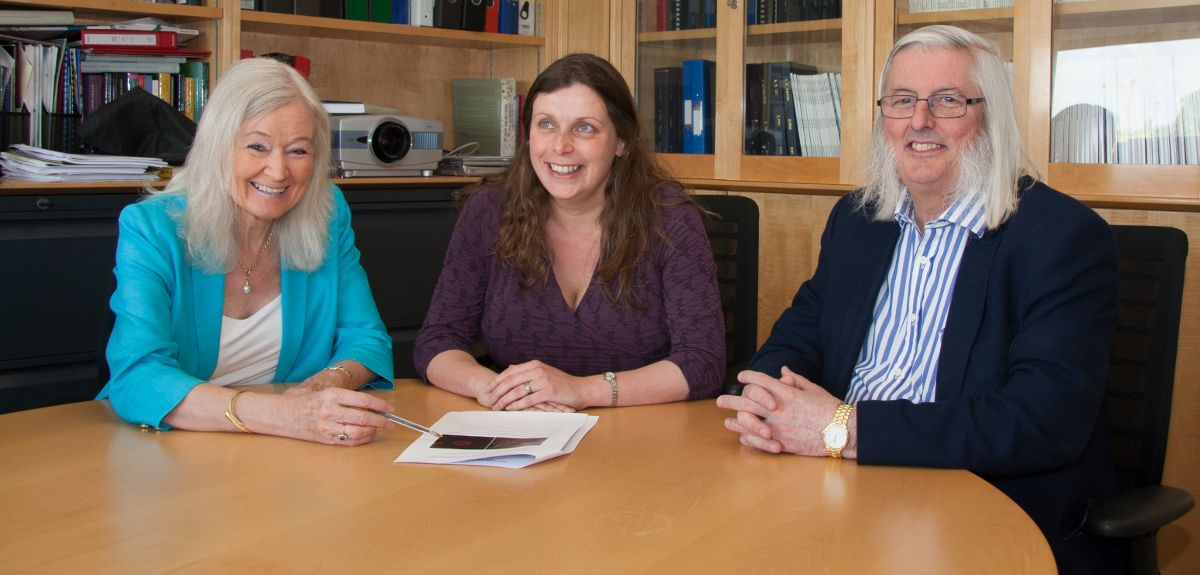
Record £16.9m for Oxford spinout designing stem cell drugs to treat age-related disease
One of the most ambitious Oxford spinouts to date is en route to becoming a powerhouse in age-related regenerative medicine, developing drugs which can treat cancer, neurodegenerative diseases, heart failure, macular degeneration and other major age-related conditions.
OxStem has raised a record £16.9m and established strategic partnerships with world-class biotechnology companies and individual investors in this rapidly emerging scientific space.
OxStem plans to develop small molecule drugs that can activate repair mechanisms that already exist within the body. Building on decades of experience in medicinal chemistry, OxStem will design drugs that can programme resident stem and stem-like cells in situ to treat currently untreatable age-related conditions.
In essence, OxStem seeks to switch on the body's natural regeneration and repair systems. Current stem cell treatments mostly focus on injection of cells into the body and are available only in hospitals with access to the specialist laboratory facilities needed to harvest, isolate and multiply stem cells. OxStem plans to reprogram stem and stem-like progenitor cells that already exist in the body with no need for cell transplantation procedures.
This will be the sixth spinout for OxStem co-founder Professor Steve Davies from Oxford's Department of Chemistry. Co-founders Professor Dame Kay Davies and Professor Angela Russell are also serial entrepreneurs with a number of drug-development spinouts to their names.
Professor Steve Davies said: 'We will identify small molecule drug candidates, which can program adult stem and stem-like cells to repair and replace tissues affected by disease or injury. We are tackling many of the worst conditions associated with ageing: dementia, heart failure, cancer and macular degeneration, which is the leading cause of blindness in the developed world.'
He added: 'We have been very fortunate in being able to collaborate with some 80 University colleagues, all leaders in their respective fields, to match our insights and skills with their domain expertise to innovate clinical models and potential therapies. This is Oxford science at its best.'
The funding will be used primarily for the development of pre-clinical small molecule drug candidates. 'By developing drugs for this purpose we have the potential to revolutionise healthcare,' said OxStem Chairman and CEO Dr Michael Stein. 'Our talented team is now going to be supported by a highly sophisticated investor base.'
Dr Stein added: 'Our company is extremely fortunate to have the strategic backing of Human Longevity Inc (HLI) and CEO Dr J Craig Venter, along with the team of Mr Bob Duggan and Dr Makham Zanganeh (former CEO and Chairman, and Chief Operating Officer respectively) of Pharmacyclics that was sold last year to Abbvie for US$21 billion. Our other investors include a number of UK and international individuals as well as Oxford Sciences Innovation. What is common to all our investors is that they are all driven by the desire to support OxStem's world-class medicinal science capabilities in its mission to positively impact millions of lives.'
The company's scientific advisory board, which is chaired by Professor Dame Kay Davies, will include Dr Venter, who is best known for his seminal genomic sequencing work including sequencing the first human genome. Commenting on HLI's involvement with OxStem, Dr Venter said: 'Professor Steve Davies and his team are true visionaries in this field and have world-class chemistry capabilities. HLI is eager to work with OxStem to jointly discover new classes of stem-cell based therapies to help enable a true era of personalised medicine.'
Oxford's Isis Innovation supported the company in preparing the spinout and commercialising the technology. Dr Carolyn Porter, Deputy Head of Technology Transfer (Pharma and Biotech) at Isis Innovation said: 'This £16.9m funding – a record for a UK academic spinout – speaks to the enormous promise of OxStem.'
OxStem will fund the development of a series of daughter companies – each with a focus on a different large unmet therapeutic need. The first of these companies is OxStem Oncology, which will investigate the potential for intervening in therapy-resistant cancers. The team will focus initially on acute myeloid leukaemia and myelodysplastic syndromes with a view to expanding to other conditions over time. Plans are well advanced for the subsequent launch of OxStem Cardio, OxStem Neuro and OxStem Ocular to apply the stem cell technology to developing therapies for cardiac failure, neurodegenerative diseases, and macular degeneration.
 Oxford Humanities team delivers framework for tackling modern slavery and human trafficking
Oxford Humanities team delivers framework for tackling modern slavery and human trafficking
 Nearly 500,000 children could die from AIDS-related causes by 2030 without stable PEPFAR programmes, Oxford experts estimate
Nearly 500,000 children could die from AIDS-related causes by 2030 without stable PEPFAR programmes, Oxford experts estimate
 Expert Comment: Why has Trump launched so many tariffs and will it cause a recession?
Expert Comment: Why has Trump launched so many tariffs and will it cause a recession?